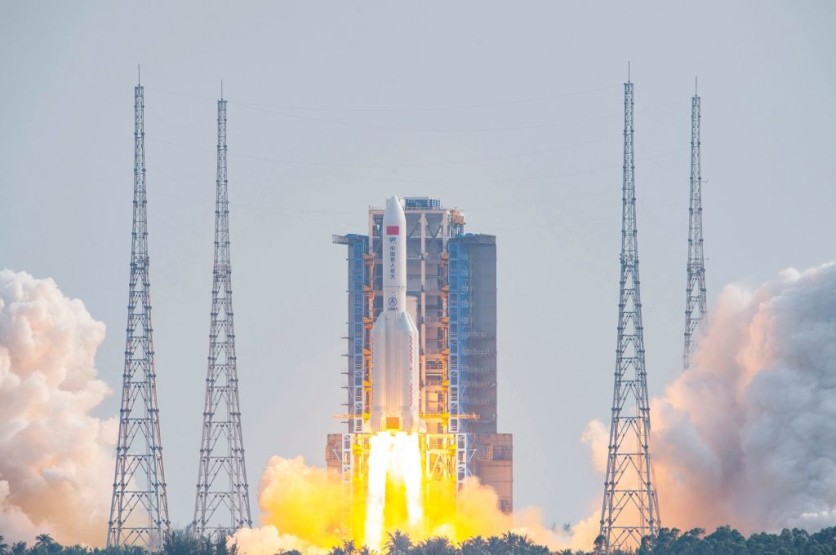China's space station, Tiangong, the biggest infrastructure in orbit owned and run exclusively by a single country, will join a project to collect solar power from space and send it to Earth.

The project involves using a high-energy microwave beam, as reported by South China Morning Post. Tiangong will play a significant role in China's Space Solar Power Station (SPPS) project as it will become a testing platform for high-voltage electric devices. The space station will also help in the assembly of massive structures.
Why Tiangong?
Tiangong has the resources to allow for such demonstrations. Therefore, it can help China meet its peak carbon and carbon-neutral goals. The full-sized Chinese space solar power plant will be a 1km-wide structure beaming gigawatt-power microwaves to Earth from a distance of 22,400 miles.
With this, the solar array in space will collect and generate energy 24 hours a day. This is due to the ability of the microwave beams to penetrate clouds that will get picked up by an antenna on the ground to generate electricity.
Since it will operate in the geostationary orbit, the space power station could direct the beam to almost any location that can be used to power military equipment or remote outposts.
The Future of Space-Based Solar Energy
China's proposal for a solar power-generating station in space isn't unique, as other nations have proposed similar projects. However, the country is currently seen as the frontrunner in this field due to its strong foundation in space research and satellite technology.
The SPPS is seen as a major step in the country's journey of becoming a world leader in space. The project is also seen to have a positive financial impact that China's state council is looking to capitalize on.
There are many advantages to generating electricity in space, the first being that it will not affect the Earth's environment. This is because there will be no carbon emissions, nor will any particles being released into the atmosphere. Moreover, the system will also not require large amounts of land as it can gather energy from the sun. This will make the project cost-effective as it will not demand a large investment.
If successful, the project will be a major step in the direction of the future. In fact, it could allow for the Earth's vast solar generation potential to be utilized effectively. Hopefully, with such technology, there will be no need to rely on fossil fuels for power.
Related article : China's Space-Based Solar Power System Test is a Success! Comparable To NASA's SPS-ALPHA?
Written by April Fowell
This article is owned by TechTimes
ⓒ 2025 TECHTIMES.com All rights reserved. Do not reproduce without permission.




